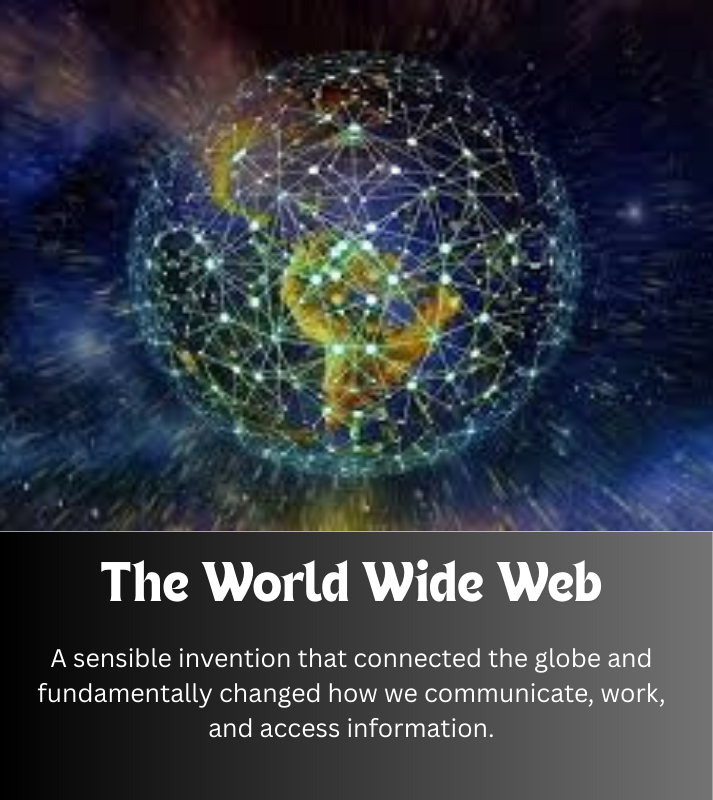The World Wide Web
A Global Connection


The World Wide Web, or simply the Web, stands as one of the most transformative inventions of the modern era. Far more than a simple network, it is a vast, interconnected universe of information and communication that has fundamentally reshaped nearly every aspect of human life. From how we work and learn to how we connect with one another, the Web has created a global village, shrinking distances and making knowledge universally accessible.
A New Way of Thinking
The story of the Web began at CERN, the European Organization for Nuclear Research, in the late 1980s. British computer scientist Tim Berners-Lee envisioned a system that would allow scientists to easily share research documents across different computers. He proposed a project based on a concept called hypertext, a non-linear way of organizing and linking information. In 1990, he created the first web browser and the first web server, laying the essential groundwork for what would become the World Wide Web. Unlike the internet—the underlying infrastructure that connects computers—the Web is a layer of information built on top of it, using a system of unique addresses (URLs) and linked pages. Berners-Lee's decision to make his invention freely available, without patents or royalties, was a "1 in a million" act that ensured its rapid and democratic spread.
Redefining Life in the Digital Age
The proliferation of the Web has led to a digital revolution, bringing about profound changes:
connecting every corner of the globe with a single click.
Communication: From email and instant messaging to social media platforms, the Web has created countless new ways to connect with friends, family, and colleagues, bridging geographical gaps like never before.
Commerce: The rise of e-commerce has turned the entire world into a single marketplace, allowing businesses to reach global audiences and consumers to find virtually any product they desire.
Knowledge & Information: The Web has become the world's largest library. Search engines and online encyclopedias have made an unprecedented amount of information available at our fingertips, empowering self-education and sparking curiosity.
Work & Creativity: The Web has fostered a new economy based on digital services and remote work. It has given artists, writers, and creators a platform to share their work with a global audience, bypassing traditional gatekeepers.
The World Wide Web is a testament to the power of a simple, yet brilliant idea. It is a living, breathing invention that continues to evolve, constantly changing how we interact with information and with each other. It is, without a doubt, a "1 in a million" invention.
Discover the extraordinary and unique stories.
Inspire
© 2025. All rights reserved.
